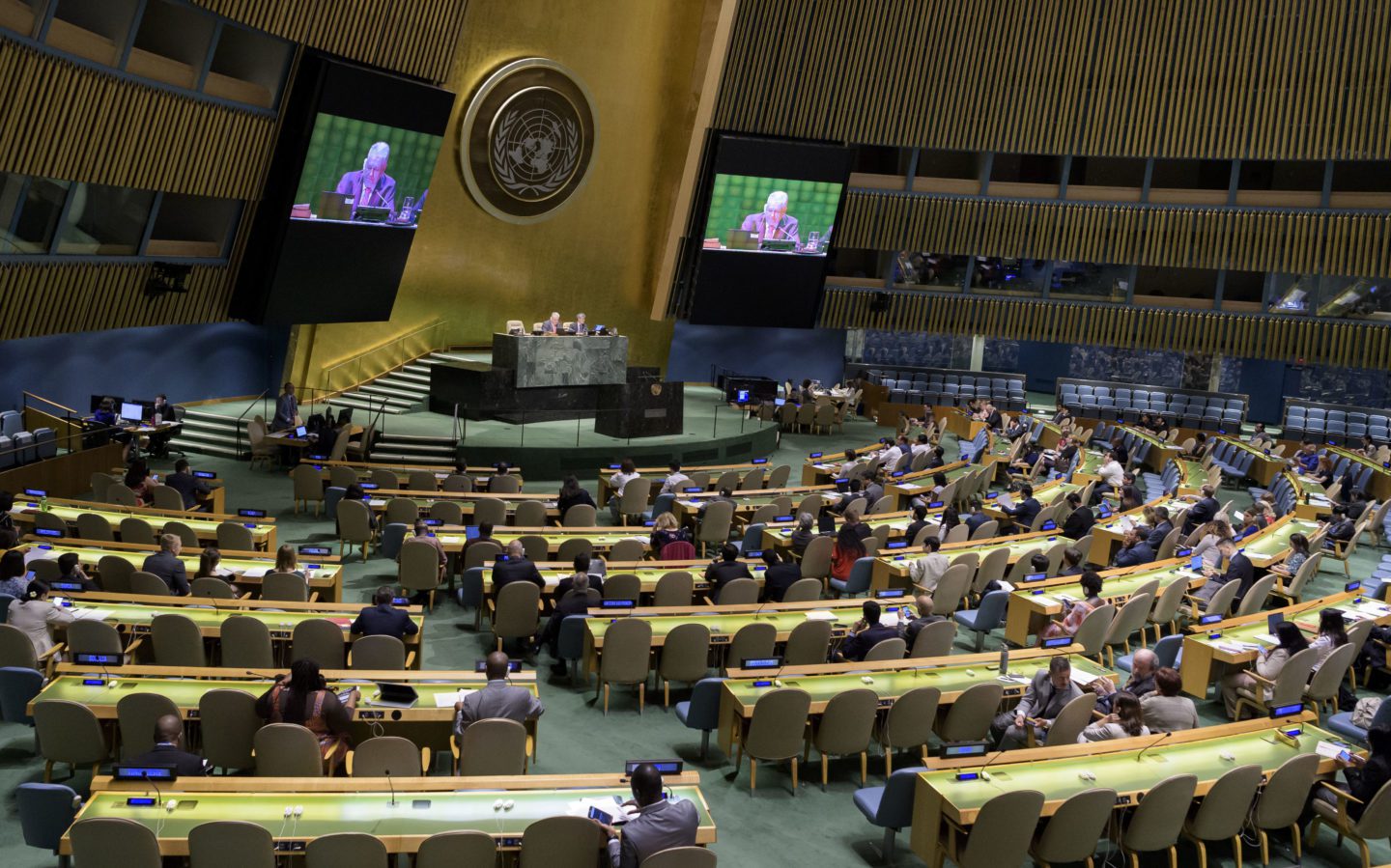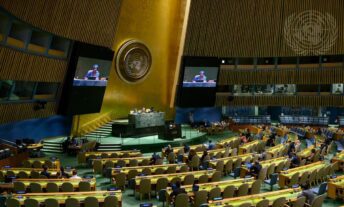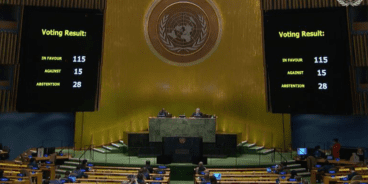
United Nations General Assembly Holds Successful Fourth Dialogue on the Responsibility to Protect
On 5 September 2012, the United Nations General Assembly held a successful fourth informal interactive dialogue on the Responsibility to Protect (R2P), focusing upon the Secretary-General’s 2012 report on pillar three entitled, “The Responsibility to Protect: Timely and Decisive Response.”
The Secretary-General in his welcoming remarks noted that, “’Never Again’ is the oft-heard cry. But I am haunted by the fear that we do not live up to this.” A diverse group of member states representing all regions of the world responded to his call to action by affirming their strong support for R2P and pledging to turn promise into practice through operationalizing R2P.
The debate saw an increase in member state participation from 2011 when 43 states delivered statements. This year 58 states, 1 regional organization and 2 civil society organizations, including the Global Centre for the Responsibility to Protect, spoke. Seven countries, including Portugal and Burundi, shared their perspective on R2P for the first time in this forum and many others who had last spoken in 2009 participated, including Viet Nam, South Africa, and Qatar.
States did not shy away from dealing with difficult issues related to using force to halt and avert mass atrocities. Echoing the Secretary-General’s report, many stressed the non-sequential and mutually reinforcing nature of R2P’s three pillars. There was widespread agreement that the international community must be prepared to use all means necessary to uphold R2P, including, as a last resort, the use of force. Representatives from both Libya and Côte d’Ivoire noted that more lives would have been lost in their countries had the international community not responded in a timely and decisive manner to halt unfolding mass atrocities.
The price of inaction was a common theme in discussions with many countries referring to the plight of civilians in Syria today. The Global Centre for the Responsibility to Protect’s statement noted that, “As Syria has shown us, inaction and indifference still remain our greatest enemies in confronting mass atrocity crimes.” On the issue of consistency in rhetoric and implementation, Singapore urged the Security Council’s five permanent members to restrict their use of the veto. They argued that accusations of double standards and selectivity might render R2P little more than a “catchy buzzword.”
Close to half of the participants welcomed the Brazilian initiative of Responsibility While Protecting and noted that the use of force must be exercised responsibly and with greater accountability. There was also unanimous agreement about the importance of prevention and the need to strengthen states’ understanding about how best to prevent mass atrocities while enhancing their capacity to do so.
A number of states used the dialogue as an opportunity to outline steps that they have taken domestically to implement R2P. Denmark, Ghana, Australia, Costa Rica, Germany, Slovenia and the Czech Republic spoke about the appointment of R2P Focal Points. The United States highlighted the creation of its Atrocity Prevention Board and President Obama’s declaration that preventing mass atrocities is a core national priority. Ghana discussed efforts to utilize R2P to strengthen the rule of law.
The General Assembly dialogue underscored that what is being discussed today is not the abstract merits of R2P, but rather how best to implement it.
Related Content


Summary of the 2022 UN General Assembly Plenary Meeting on the Responsibility to Protect
